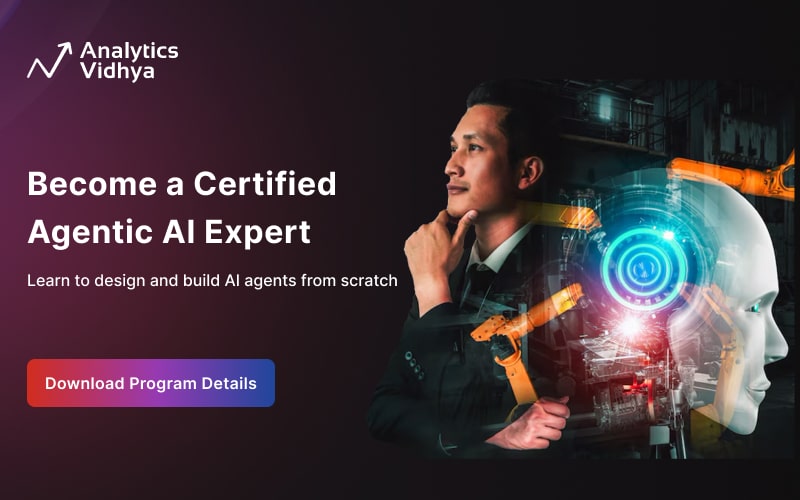Introduction
Joanna Maciejewska recently expressed a thought-provoking sentiment on X:
This statement captures a significant sentiment among millennials who seek to optimize their time for creative and fulfilling activities rather than mundane ones, freeing up time for more creative and fulfilling activities.
Historically, advancements like email and smartphones, while designed to streamline communication and enhance flexibility, often bound us closer to our work obligations, blurring the distinctions between professional and personal time. However, the emergence of AI technologies introduces a hopeful shift toward automating tedious aspects of daily routines. Let’s find out how AI can help millennials achieve work-life balance.

Overview
- Many millennials want AI to automate mundane tasks like laundry and dishes, freeing them up for creative and fulfilling activities.
- Previous advancements like email and smartphones blurred work-life boundaries, but AI holds promise for better work-life balance by automating daily routines.
- AI technologies like Google Nest and Ring enhance home management, reducing the mental load of domestic tasks.
- AI-driven tools such as Asana and Notion streamline workflows, manage tasks, and automate administrative duties, enhancing workplace productivity.
- AI-powered platforms like Coursera and Fitbit offer personalized learning and wellness experiences, aiding in personal growth and mental well-being.
- While AI aids creative processes, there are concerns that it could potentially replace human creativity, necessitating a balanced approach to its integration.
Table of contents
Understanding Work-Life Balance
Work-life balance refers to the equilibrium between professional responsibilities and personal life. It involves allocating adequate time and energy to work while also nurturing personal relationships, hobbies, and self-care. For millennials, who are often navigating the early stages of their careers and personal lives, achieving this balance can be particularly challenging. The pressure of a competitive job market, student debt, and the desire for personal fulfillment add layers of complexity.
AI in Work-Life Balance
AI technology is increasingly becoming a tool to help manage and streamline both professional and personal tasks. Here are several ways AI can assist in achieving a better work-life balance:
AI Technologies in Smart Homes
For instance, AI technologies in smart homes, such as Google Nest for temperature control and Ring for security systems, manage domestic environments efficiently, reducing the mental load and time spent on domestic management.

In the workplace, AI-driven tools like Asana for task management and Notion for workflow optimization play a crucial role. These tools automate and streamline workflow, prioritize tasks, and handle routine administrative duties like scheduling and email management through integrations with email clients that use AI to sort and prioritize messages.

Streamlining Daily Tasks with AI
AI appeals to many because it can automate mundane tasks. AI is revolutionizing the way common activities are performed, whether it is through the application of Natural Language Processing (NLP) to enhance voice-activated assistants using tools like Amazon Alexa or Google Assistant to manage daily schedules and control smart home devices. Additionally, machine learning algorithms optimize smart home appliances, tracking groceries and managing expiration dates.
These AI tools are not merely conveniences, especially for millennials and people who frequently juggle various tasks and duties; they are necessities that free up time—time that can be spent on leisure activities, creative pursuits, or exploring ClickUp alternatives for better productivity.

Boosting Workplace Efficiency
In the professional sphere, AI’s impact is both profound and promising. Data science tools like Tableau for data visualization and IBM Watson for predictive analytics enhance workplace productivity by analyzing vast datasets to forecast project deadlines and manage resources efficiently. Additionally, automated AI systems can analyze vast datasets to forecast project deadlines, manage resources efficiently, and even automate routine administrative tasks.
These examples show how ordinary chores may be automated by AI, improving productivity at home and at work and substantially influencing work-life balance. AI makes more room for creative endeavors and personal growth by lowering stress and freeing up time, resulting in a more balanced and satisfying existence.
AI in Personal Development and Mental Well-being
The integration of AI into personal development tools provides a tailored approach to education and health, specifically customized to individual preferences and schedules. Machine learning models empower platforms like Coursera and Khan Academy, which adapt educational content to match one’s learning pace and style, making lifelong education more accessible and engaging. Similarly, AI-driven wellness applications such as Fitbit and Headspace deliver personalized health insights and recommendations, essential for maintaining physical and mental well-being in our busy lives.

Navigating the Creative Dilemma
Yet, AI’s integration into creative sectors is met with mixed feelings. Although AI could assist creative processes by offering programs like Adobe Sensei and AIVA that make digital art and music production easier, there is growing apprehension that AI may eventually supplant human creativity. The goal is to find a solution that builds a balanced approach to enhance and support human work rather than substitute it.

Embracing AI Responsibly
The discussion surrounding AI’s contribution to millennials’ attainment of work-life balance is representative of a larger debate over the moral use of technology. It is imperative that, rather than undermining the value of human touch and creativity, AI research be directed towards boosting human talents and improving life quality.
Conclusion
AI can potentially play a significant role in promoting a positive work-life balance as it develops. Routine duties may be automated to free up more time for personal activities and reduce burnout, resulting in a more fulfilling and productive life outside the office. It will be crucial to ensure that these tools aren’t just employed to increase our availability for work but also to improve our skills and enrich our lives. Thus, the challenge lies in developing AI and shaping it to fulfill the nuanced needs of human aspirations and societal values.
If you feel you can add more to AI space then – Unlock your potential with the GenAI Pinnacle Program. Join us for 1:1 mentorship with Generative AI experts, an advanced curriculum with 200+ hours of learning, and mastery of 26+ GenAI tools and libraries. Revolutionize your AI skills and achieve the perfect work-life balance today!
Frequently Asked Questions
Ans. AI-driven calendar apps prioritize tasks, set reminders, and optimize schedules, helping millennials manage their time efficiently.
Ans. AI can automate household chores, order groceries, and provide reminders for personal appointments through smart home devices and virtual assistants.
Ans. Yes, AI-powered mental health apps offer on-demand counseling, stress-relief exercises, and mood tracking to support mental well-being.
Ans. Yes, using AI tools involves data collection. Choose reputable tools, read privacy policies, and adjust settings to protect data.







